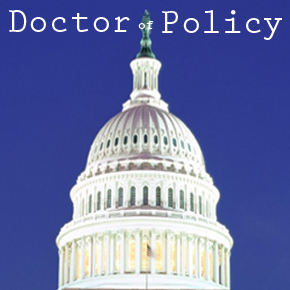 Aishwarya Rajagopalan (17 Posts)
Aishwarya Rajagopalan (17 Posts)Writer-in-Training, Columnist and in-Training Staff Member
Philadelphia College of Osteopathic Medicine
Aishwarya is a second year medical student at the Philadelphia College of Osteopathic Medicine. She relishes any opportunity to talk policy, social determinants of health, mental health parity and inclusion topics. Outside of school, Aishwarya enjoys yoga, green tea with lemon and copious amounts of dark chocolate.
Doctor of Policy
Doctor of Policy is a column dedicated to exploring and challenging contemporary health policy issues, especially in the fields of behavioral health, health care access, and inclusion, all from the eyes of a public health girl in a basic sciences world
In the past few weeks, there has been considerable press surrounding needle exchanges and the recently declared HIV epidemic in Indiana.
The first time I talked with my friends about needle exchanges, I had a visceral reaction. “Why would you give people new needles?” I asked, completely outraged. “Isn’t that enabling and therefore doing a disservice to the very people you’re trying to help?”
In recent weeks, President Obama signed the Clay Hunt Suicide Prevention for American Veterans Act, a landmark step in promoting access to services and in supporting efforts to reduce deaths by suicide among veterans. Nearly 20 percent of deaths by suicide in the United States each year are by veterans, particularly veterans who served in active duty and combat.
In the month of January, we have had more cases of measles in the United States than we typically have in an entire year. The reason the United States is able to keep cases of measles so low is because of MMR vaccination. In an ideal world, everyone would receive vaccines so that the entire population would be immune to measles. This way, when someone brand new arrived, their infected state would not have grave implications. The reality is this: there are some groups of the population who cannot receive vaccines.
What I have learned along the way is that many people find policy boring. Maybe they associate it with clips of C-SPAN they watched in middle school civics class, or perhaps it evokes the frustration felt when yet another health policy dies a silent death on a Congressional floor, but whatever the reason, policy is ascribed as a responsibility solely for politicians. This presents a massive conundrum because our interests as future clinicians cannot be represented if we are not the ones speaking to policymakers.
Congress can be frustrating. Beyond political affiliations and tactical alliances, navigating the actual policies created by Congress can be challenging. This causes many people, medical students included, to write off policy as “boring” or “irrelevant” to their careers. For medical students, nothing could be further from the truth. Everything from services covered by Medicare and Medicaid insurance policies to the types of research funded at the NIH are influenced in one way or another by policy. Inevitably, policy does not always reflect the realities of practice. One of the factors contributing to this disparity may be privilege.
 Aishwarya Rajagopalan (17 Posts)
Aishwarya Rajagopalan (17 Posts)Writer-in-Training, Columnist and in-Training Staff Member
Philadelphia College of Osteopathic Medicine
Aishwarya is a second year medical student at the Philadelphia College of Osteopathic Medicine. She relishes any opportunity to talk policy, social determinants of health, mental health parity and inclusion topics. Outside of school, Aishwarya enjoys yoga, green tea with lemon and copious amounts of dark chocolate.
Doctor of Policy
Doctor of Policy is a column dedicated to exploring and challenging contemporary health policy issues, especially in the fields of behavioral health, health care access, and inclusion, all from the eyes of a public health girl in a basic sciences world

